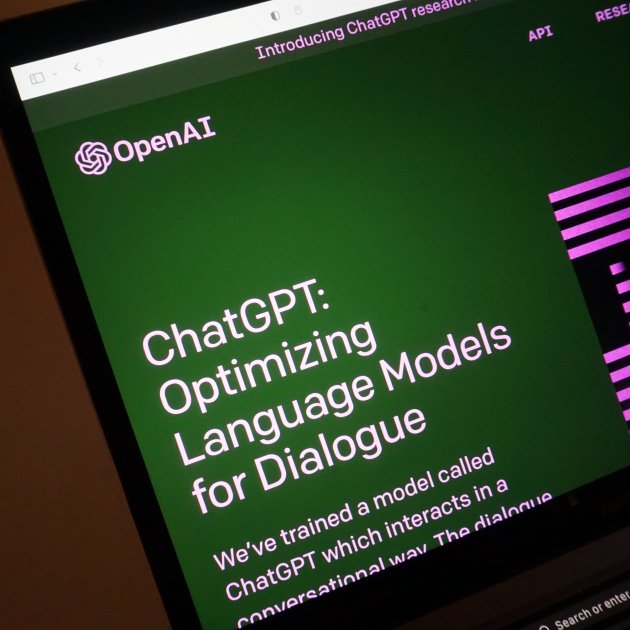The leading British business weekly The Economist has situated the Catalan language as one of the beneficiaries of artificial intelligence, due to the linguistic development involved in the new technology, which is able to translate effortlessly and interact fluently in dozens of different languages. According to the magazine, this is one of the strengths of ChatGPT, which it describes as a "miracle of multilingualism". The report is illustrated with a graphic of a mobile phone, accompanied by Catalan, British, Spanish, Danish and Portuguese flags.
The Economist explains that ChatGPT speaks more than 50 languages and that it does it equally well whether they have billions of speakers or not, and thus, when asked to write in Catalan it does so perfectly. The point is that for this artificial intelligence technology, there are no languages that are more important than others, and this marks a revolutionary change, as the British publication highlights. "ChatGPT is too modest about it own capabilities. If you ask it, it provides a list of 51 languages it can work with, including Esperanto, Kannada, and Zulu. It claims it cannot "speak" in these languages, but "generates text" with them. But it is too humble an answer. If asked in Catalan - a language that is not on the initial list - it answers in that language with a cheerful: "Yes, I speak Catalan, how can I help you?" The writer asks follow-up questions and they don't trip up the ChatGPT interlocutor in the slightest, including one about whether it is just translating into Catalan answers it has first generated in another language. ChatGPT denies this: “I don’t translate from any other language; I look in my database for the best words and phrases to answer your questions,” it explains.
According to The Economist, this spectacular artificial intelligence development has "somehow" overcome two of the problems that non-global languages had, which were the little incentive that companies had to offer products that supported them, and the lack of data to train them with. From here on, the task becomes exponentially cheaper and technically much easier. Although, as the British weekly notes, ChatGPT, although fluent in many languages, also tells lies in them. The current Chat iteration, thus far, is known for its inaccuracy.
Google had already announced a plan to introduce its own artificial intelligence tool this spring, but ChatGPT, a so-called large language-based AI model, got the jump. It works by statistically generating the word which would be the best choice to follow any given text. After basing ChatGPT on its version GPT-3.5, the company has already released GPT-4, which is capable of passing medical and legal bar exams.
In fact, the progress of the technology has been so rapid, that tech experts, scientists, and entrepreneurs have come together in the last few days to jointly sign a letter that warns of the dangers of unbridled development of AI. The letter, more than just a complaint, is also proactive, proposing that the current AI development be suspended for six months. Why? To have time to assess the potential risks of this technology and generate a solid legal framework around the field. "Society has made a pause in other technologies with potentially catastrophic effects for society. We can do so here. Let's have a long summer break from AI and not rush to autumn unprepared," states the letter, which is signed by such prominent figures as Tesla CEO Elon Musk, Apple co-founder Steve Wozniak, the North American researchers Yoshua Bengio, Stuart Russel and the Spaniards Carles Sierra and Ramón López De Mantaras.
